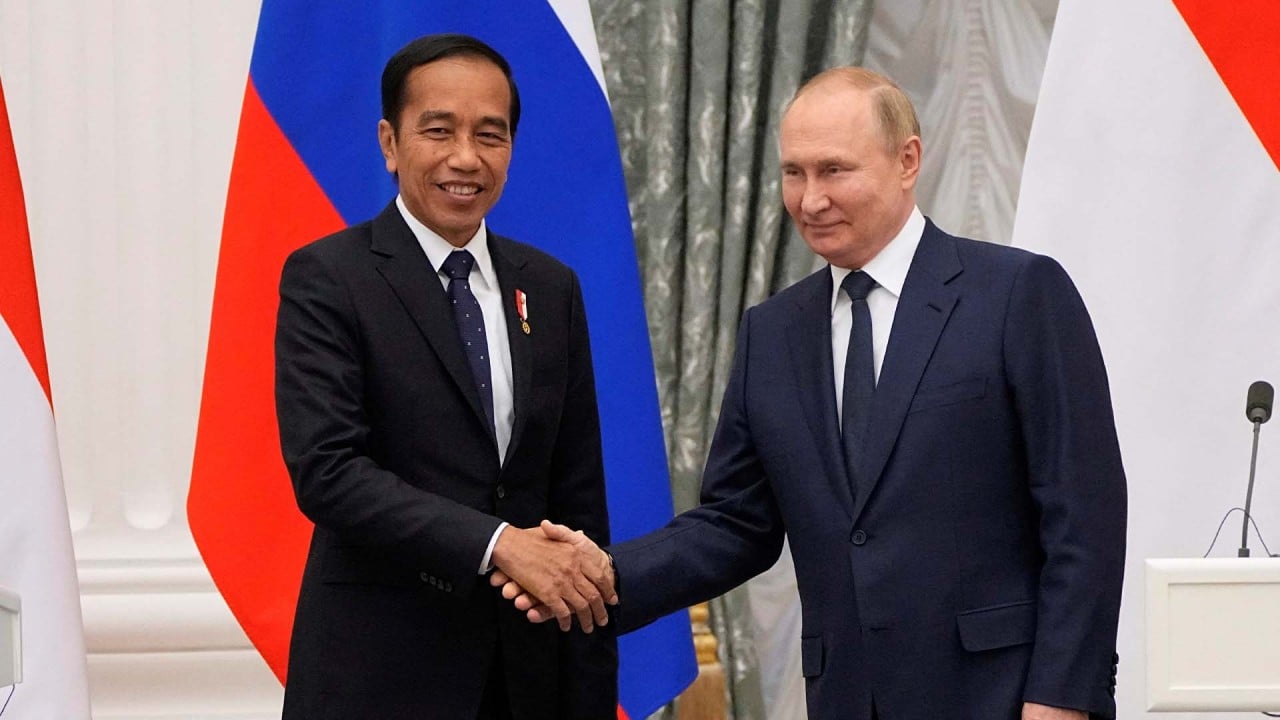
Ukraine war: Putin and Zelensky refused to meet, Indonesia says of failed peace talks
- Joko Widodo in June met Volodymyr Zelensky in Kyiv before holding talks with Vladimir Putin in Moscow during a peace-building mission
- When his efforts at brokering peace made no headway, he focused his talks on the global food crisis, including on wheat stockpiles
Indonesia is the world’s second-biggest importer of wheat and has felt the impact of Russia’s war in Ukraine, which cut off grain supplies from a region that fed billions of people in the form of bread, pasta and packaged foods.
The Southeast Asian nation is trying to increase output of corn and wheat substitutes like sorghum, sago and cassava to bolster its food supply chain.
Widodo has instructed the cabinet to produce a road map for expanding planting areas by at least 300 per cent through 2024.
Meanwhile, the US said Ukraine is on course to ship nearly as much grain this month as it did before the Russian invasion, in a triumph for international efforts to ease food shortages.
Kyiv and Moscow last month reached an agreement through the mediation of Türkiye and the UN, with guarantees for ships to sail out of Ukraine’s blockaded Black Sea ports.
A State Department official said on Tuesday that the efforts have moved out more than 720,000 tonnes of grain from the ports through 33 vessels over the past several weeks.

